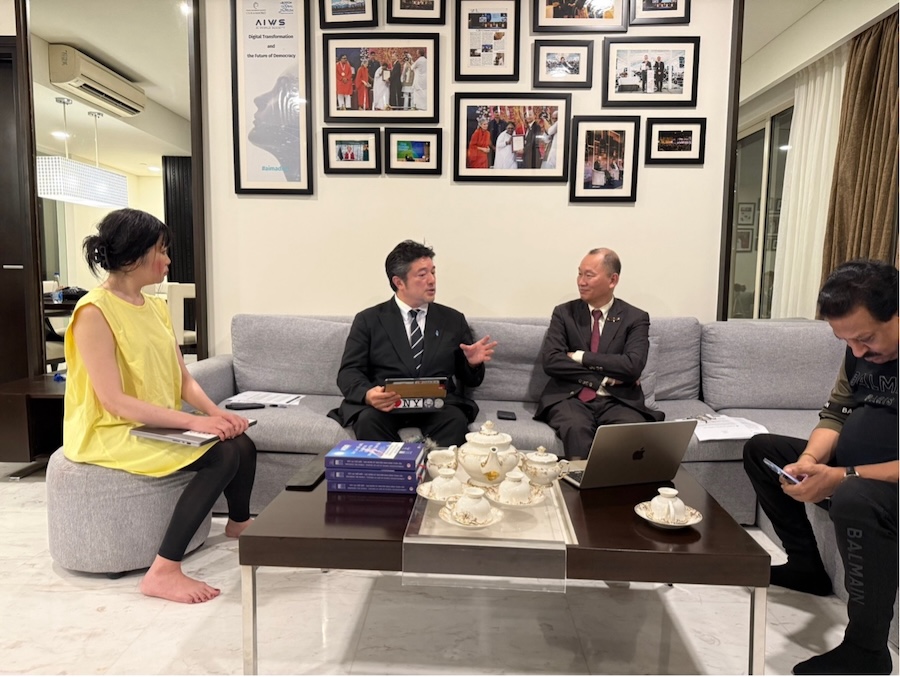From Harmony to Humanity
A Seventeen-Article Constitution for the AI Era
Inspired by the Principles of Prince Shōtoku (604 AD)
I. Executive Summary
Artificial Intelligence (AI) is transforming every aspect of human life. It holds immense promise but also grave risks to human dignity, democracy, and peace. This proposal offers a human-centered governance framework inspired by one of the oldest ethical constitutions in the world: Japan’s Seventeen-Article Constitution, authored by Prince Shōtoku in the year 604 AD.
Rooted in the timeless principles of harmony, propriety, public good, and deliberation, this modern adaptation lays out 17 guiding articles for the responsible development and use of AI. It is not a set of rigid laws, but a moral compass designed to help us stay human in an increasingly technological world.
This document is addressed to international policymakers, corporate leaders, academics, and citizens who care deeply about ensuring that AI serves all of humanity.
II. Historical Context: Wisdom from a Distant Past
In the early 7th century, Japan was a fractured society. Feudal clans competed for power. Political instability and internal conflict threatened the future of the emerging nation. In this environment, Prince Shōtoku crafted a visionary ethical framework—the Seventeen-Article Constitution.
Though not a legal code, it provided moral and administrative guidance to leaders and officials. It introduced:
- The supremacy of harmony (wa) as a political and social value
- The importance of ethical governance and spiritual respect
- Early forms of meritocracy and bureaucratic professionalism
- A deep commitment to deliberation over autocracy
This was more than Japanese political reform. It was an early example of humanist thinking in statecraft—centuries ahead of its time.
⸻
III. The Original Seventeen Articles (604 AD)
Each of the following articles is presented with a plain-language explanation:
- Value harmony above all. Cooperation is the foundation of a strong nation.
- Respect the Three Treasures: Buddha, Dharma, Sangha. Let spiritual ethics guide governance.
- Follow the emperor’s will with sincerity. Maintain unity under legitimate authority.
- Uphold propriety. Officials must act with discipline and humility.
- Forgive, and correct your own faults. Reconciliation is more powerful than revenge.
- Appoint officials based on merit. Leadership must reflect ability, not birthright.
- Avoid disputes. Arguments breed chaos and weaken governance.
- Work diligently. Laziness in duty is a danger to society.
- Adopt good ideas; reform bad practices. Be flexible and principled.
- Be united in national matters. Important decisions require consensus.
- Reward virtue; punish wrongdoing. Justice must be consistent and fair.
- Care for the people. Officials must govern with empathy and responsibility.
- Discourage evil; encourage good. A moral state is a stable one.
- Do not be jealous of colleagues. Internal strife undermines collective progress.
- Put public interest before personal gain. Selflessness builds trust.
- Consider the seasons when taxing labor. Respect the rhythms of people’s lives.
- Deliberate together. No one should decide alone.
IV. A Modern Constitution for the Age of AI (2025 AD)
Preamble: Inspired by Shōtoku’s principles, and recognizing the power and risks of AI, we propose these 17 articles as a global framework for ethical, inclusive, and human-centered AI governance.
- Promote harmony and shared human flourishing.
- Ensure that humans retain final authority and accountability.
- Uphold the rule of law and protect fundamental rights.
- Require transparency, explainability, and public trust.
- Take responsibility for harms and correct mistakes.
- Assign duties based on capability and ethics.
- Prevent conflict through cooperation and alignment.
- Maintain diligent oversight and continuous monitoring.
- Foster continuous learning and adaptive improvement.
- Base high-risk decisions on deliberation and consent.
- Encourage ethical innovation; penalize abuse.
- Safeguard vulnerable populations and promote inclusion.
- Forbid exploitative, militarized, or authoritarian use.
- Promote fairness and prevent monopoly control.
- Prioritize the public good above all other interests.
- Ensure environmental and generational sustainability.
- Create grievance mechanisms and democratic oversight.
V. Implementation Guidelines
- For governments: Codify these principles in AI legislation and regulatory oversight bodies.
- For companies: Build internal review boards, redress systems, and safety protocols.
- For researchers: Publish audit reports and assess social impacts.
- For international forums: Align national standards and foster interoperability
VI.Closing Message
When Prince Shōtoku wrote these words over a millennium ago, he could not have imagined the digital world of today. But he understood something eternal:
“No matter the era, governance must be rooted in respect, wisdom, and the common good.”
AI must not lead us into division or domination. It must be led by us—wisely, humbly, and together.
Let us reawaken the human spirit in our technologies.
Let us build not just smart machines, but a more just, inclusive, and harmonious world.
Let this Seventeen-Article Constitution for the AI Age be our guide.
